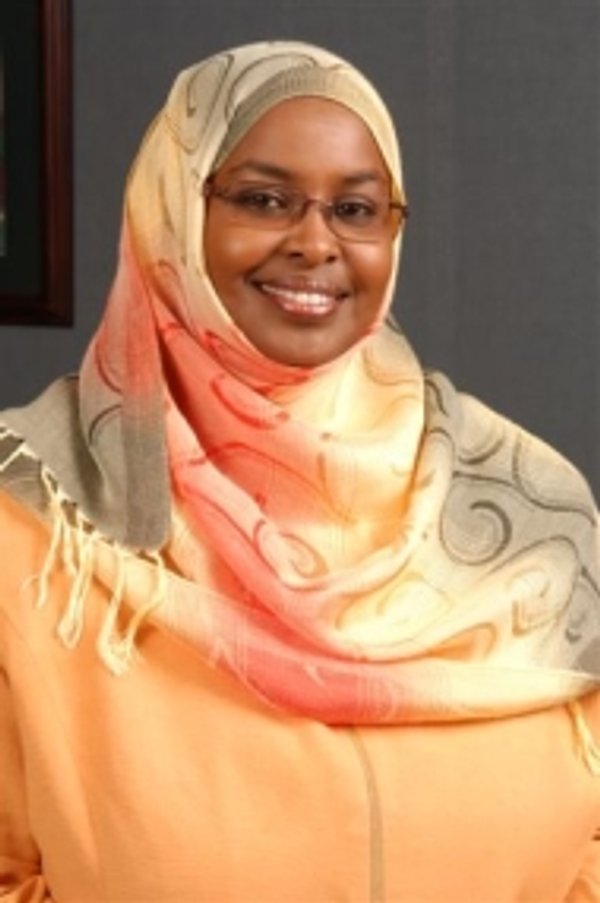When the first members of Opus Dei arrived in Kenya, St. Josemaría encouraged them to open schools that would be open to everyone, to persons of all races and creeds. Now, almost fifty years later, Fatuma Hirsi Mohamed, a Muslim, has begun working toward an MBA at Strathmore Business School, a corporate apostolic initiative of Opus Dei.
Fatuma is the mother of four children. In addition, she is the director of the principal communications agency in the country, serves as president of the country's Public Relations Society and is a board member of the Advertising Standards arm of the Kenya Marketing Society. Besides all this, she lends a hand in a social project that distributes computers to schools throughout the country.

Tell us something about yourself.
"I am married and have four children. The oldest is now in the university. Among other occupations, I am employed by the National Media Group. In my free time I enjoy sports with my family. Imagine a lady in a veil playing golf! Well, I do it. Devoting so much time to work and study, I like to spend my free time on weekends with my family."
How do you manage to balance work, family, and study?
"Like so many people, I run the risk of slipping into chaos. I've had that experience, and once you are engulfed in it, it's hard to tell what is most important. So I have discovered the trick of stopping every morning to think for a minute about what tasks await me that day. Then I ask myself: What is the really important thing for my life? At times you discover that some of things you were planning to do actually conflict with your goals in life.
"This need to bring some order into my day has become fundamental for me as a woman with so many responsibilities--as a mother, a wife, a friend, a daughter, an employee, a boss, a nurse, a seamstress, an organizer of activities, a counselor, a teacher... You understand what I mean."
You are studying for an MBA at Strathmore. Why did you decide on that school over so many other possibilities?
"Three years ago I started a distance learning MBA program at Warwick Business School, one of the best in the world. But I couldn't combine it with my other occupations, so I left the program. That was the first time in my life that I stopped something I had begun. But I promised myself that I would fulfill my dream of earning an MBA. Strathmore's system appealed to me, so I decided to do it there. I'm really very satisfied with my choice."
Muslim women are almost 4% of Kenya 's population. With that in mind, are you aware that you set an example for many people?
"Yes. I am well aware of how my religion and my gender cause me to stand out. I'm an ethnic Somali from a tribe of shepherds who live in northeastern Kenya. Among my people, it's common to neglect the education of children, especially girls. I consider myself fortunate that my parents gave me the same opportunities as my brothers.
"In a predominantly Christian country, the fact that I can associate with so many people has led me to take more seriously my responsibility on behalf of young women who do not have access to education. That's why we founded an NGO called Gargaar Kenia to increase educational opportunities for young girls in this country."
St. Josemaría, the impulse behind Strathmore University and Kianda College, wanted these schools to be open to people of all races and creeds. You've been able to experience that...
”Yes. I took a bilingual secretarial course in Kianda where I learned things that have really been useful: to type, to handle office equipment, to manage an office. Now at Strathmore Business School I'm experiencing the same professional dedication and human friendliness. Never have people treated me differently because my religion is different from the one that inspired these schools."
Do you have any advice for people who are starting out in their profession?
"I do: Set clear personal goals and learn to enjoy the simple things in life!"
